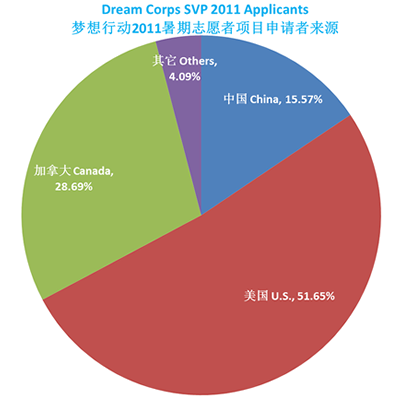- Jun Luo, Board Member, as a panel presentation at University of Toronto China Conference, March 27 2010
I guess I am supposed to speak on the “society” part of this panel on “society, policy and law”. But I am no expert of society. As a non-profit organizer, I work from within the fabric of society. I will thus speak from the experience of Dream Corps itself, on its character and its journey, as a concrete example of social forces contributing to the harmonious development of China.
3S
In spring 2004, a set of photos were circulated in a discussion group of Chinese students at Duke University and UNC. This group, named 3S (or三思), for Science, Society, and Self-Awareness, has been a forum for open-ended discussions on topics ranging from ubiquitous computing and cyborgs, to phenomenology and Buddhism, to demography and traditional Chinese art. The photos, which depicted hardship of life in rural China, agitated members of 3S. We wanted to do something about the poverty we saw in the photos. And we did. That was the beginning of Dream Corps—from passionate reaction to real action, a common enough beginning of a nonprofit.
Ambition
In the beginning, we were incredibly ambitious. We wanted to set up websites linking farmers to the market of their produces. We wanted to teach in rural schools. We wanted to do youth engagement. We wanted to train teachers and farmers in new technologies. We wanted to offer consultation in law, health, and policy. We attempted, or at least attempted to attempt, most of these in that first summer of 2004. We really had imagination; (and imagination we still have, plenty of it). Fortunately, we were also receptive and the reality on the ground cooperatively snapped us into the right mental frame. By the end of that summer it has become clear: We could be doing any one of these things, if we seriously organize ourselves around it, but probably no more than one.
Focus
In that hectic summer, we visited many schools. Every school we visited had a library, or really a room filled with shelves of books, sitting there gathering dust. It was a universal pattern, a pattern some of us knew firsthand when we ourselves were in grade schools back in China. At one of the schools, however, we brought some new books, opened up the school library that’s already filled with books. An essay contest on books and reading was organized; students’ reading responses were broadcasted through the school’s announcement system; a program integrating library access, reading, school newspaper, and broadcast station was struck, under the leadership of the school’s vice-principal. The power and charm of reading were palpable on the campus.
In our post-summer deliberations: this experience allowed a focus for Dream Corps to emerge: libraries, more specifically, open access to library materials that are already there. That, we felt, could be the most cost-effective way for us to help out; and we could send volunteers every year to stir and spur. Clear and simple, or so we thought.
Motto
While we were naive about what it would really take to open up libraries and keep them open, we were not too naive. We were all passionate, we knew that. But we were also wary of how transient passionate reactions tend to be and what damages they could do. We understood that the ground from which our actions sprung must not be passions on our part alone; it must instead resonate with all parties in the endeavor: students and parents, volunteers and organizers, teachers and administrators. Thus, Compassion instead of passion. We also knew clearly that we did not have the answer. We had instead a challenge. And Dream Corps could never be the whole answer to that challenge. It could be a part, a small but maybe catalytic part. That is, we are committed to Participation. And, of course, we wanted to do well, to be Excellent. But we did not want what is excellent to be defined by ourselves, to be defined as our feeling good. Excellence, for Dream Corps, does not mean “we” surpassing “them”, but rather we surpassing ourselves through enabling collective excellence, enabling children to achieve their own excellence.
The spirit of Dream Corps, in a nutshell, is excellence through compassionate participation.
(to be continued)
Subscribe to:
Post Comments (Atom)




0 comments:
Post a Comment